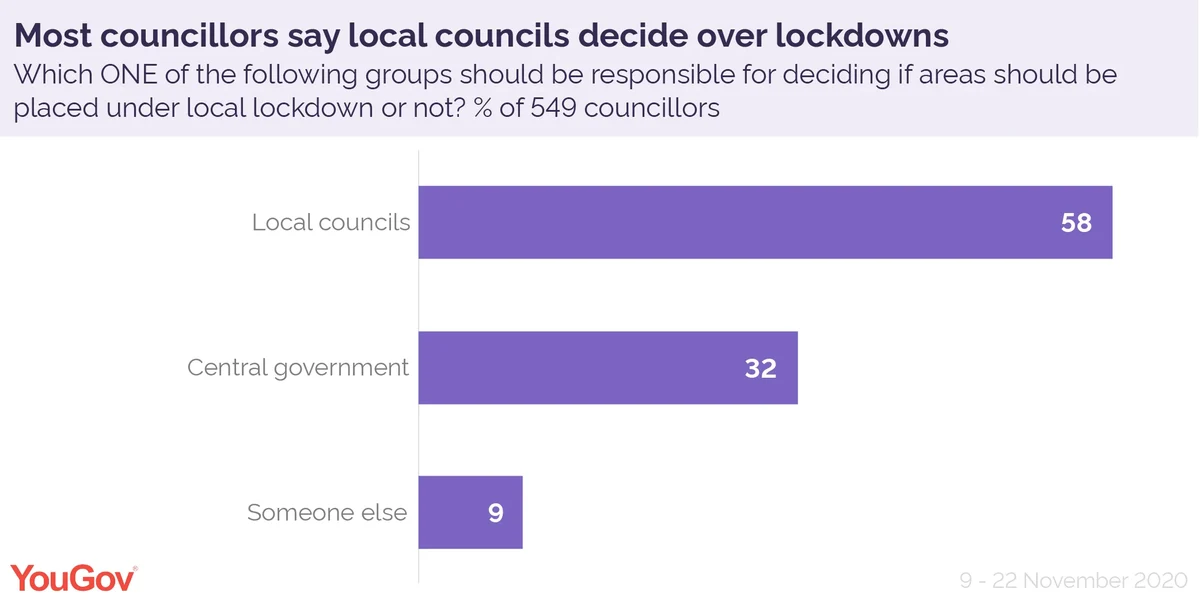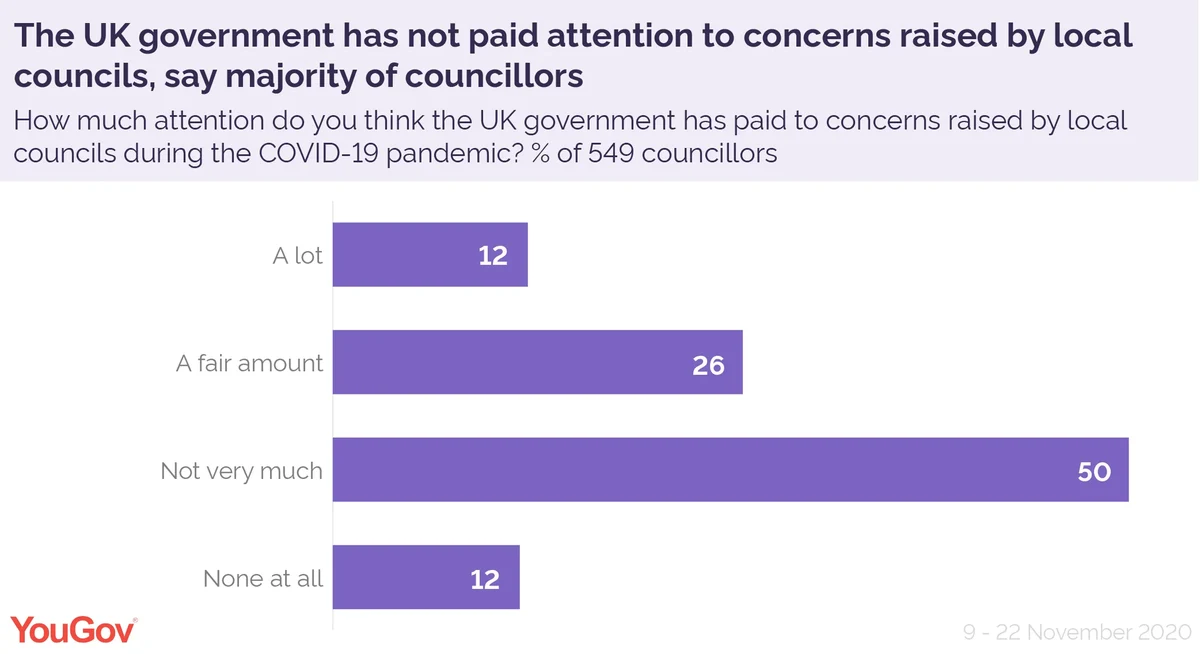
Most councillors say councils should decide about local lockdowns
Over half of local councillors say that councils should be responsible for deciding whether areas are placed in local lockdown or not
A new YouGov poll of 549 councillors across Britain shows that nearly three in five (58%) think responsibility for deciding about local lockdowns should lie with councils while a third (32%) believe it should rest with central government. A further 9% say someone else should decide.

Most (73%) Labour councillors think local councils should have the powers to decide over local lockdowns, while only one in seven (14%) say it should sit with central government.
However, Conservative councillors are split on the issue. Half (50%) favour local councils holding the responsibility with only slightly fewer (46%) choosing central government.
Many councillors say the UK government has not paid attention to their concerns
Half (50%) of councillors believe the government has not paid enough attention to the concerns of local councils during the pandemic, while one in eight (12%) say it’s not paid any attention at all to their anxieties.
In contrast, a quarter (26%) feel the government has been fairly attentive, while 12% said their concerns had received a lot of attention.
Again, Labour and Conservative councillors differ notably in their views. While nine in ten (89%) Labour councillors feel the government had not paid enough attention to their concerns, this view is only shared by a quarter of Conservatives (24%). In contrast, three quarters (75%) of Tory councillors believe their concerns have received a lot (27%) or a fair amount (28%) of attention while just one in ten (10%) of Labour councillors feel the same (2% a lot, 8% a fair amount).

The research also found that a majority (56%) of councillors feel supported by the government during the pandemic to either some (36%) or a great (20%) extent. About two in five (43%) only feel supported to a small extent (33%) or not at all (10%).